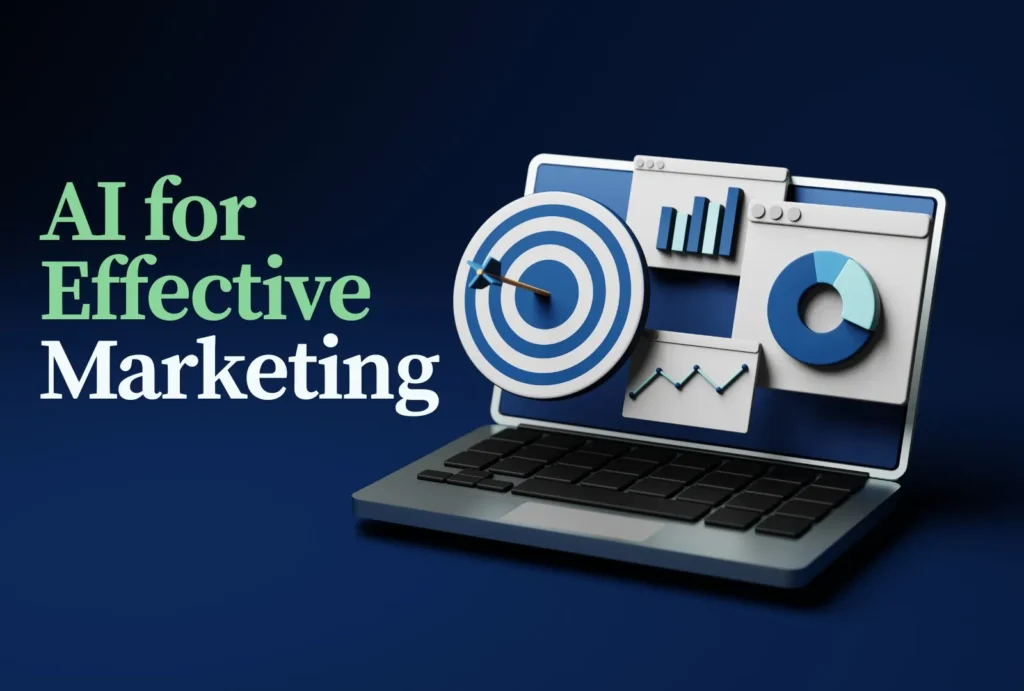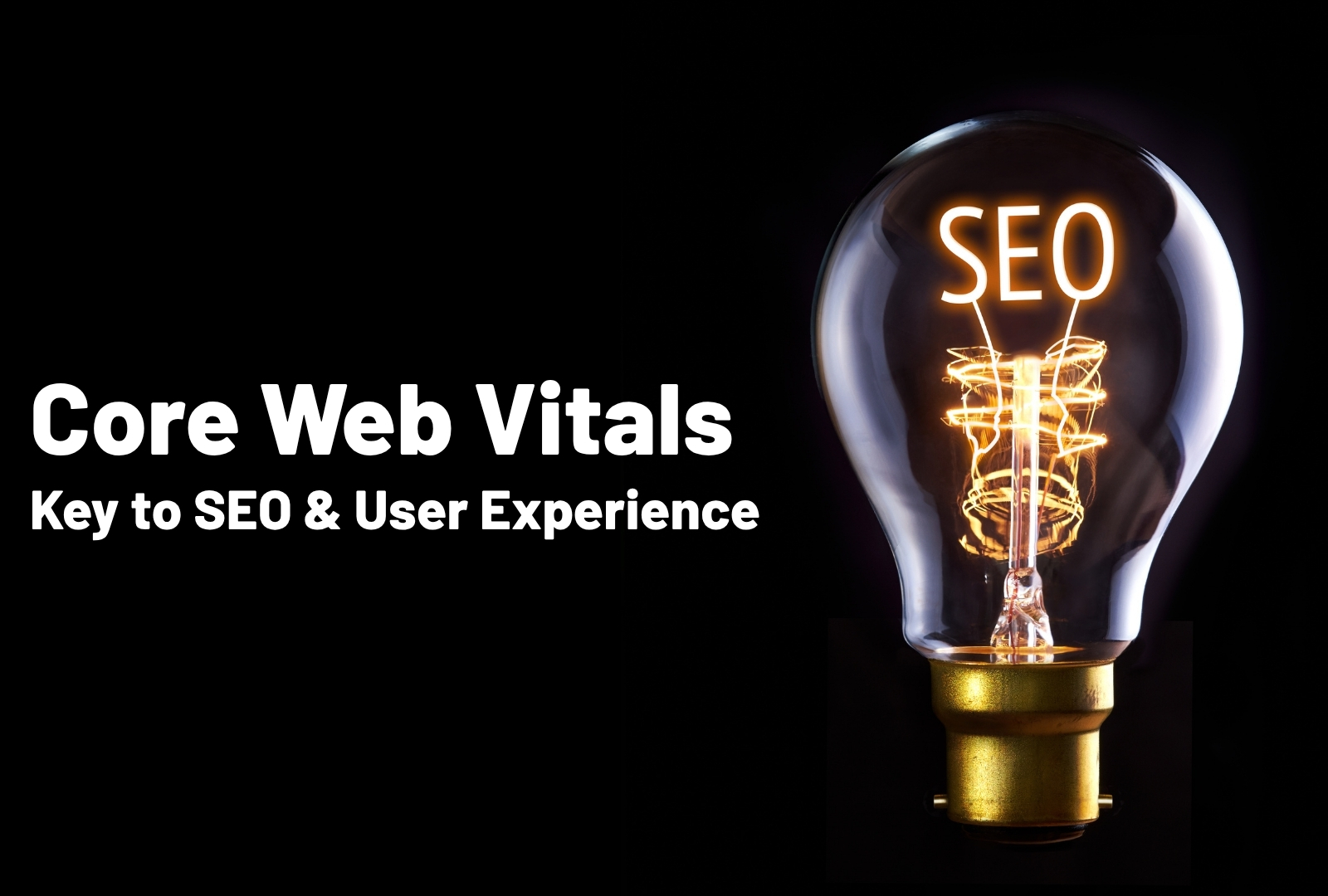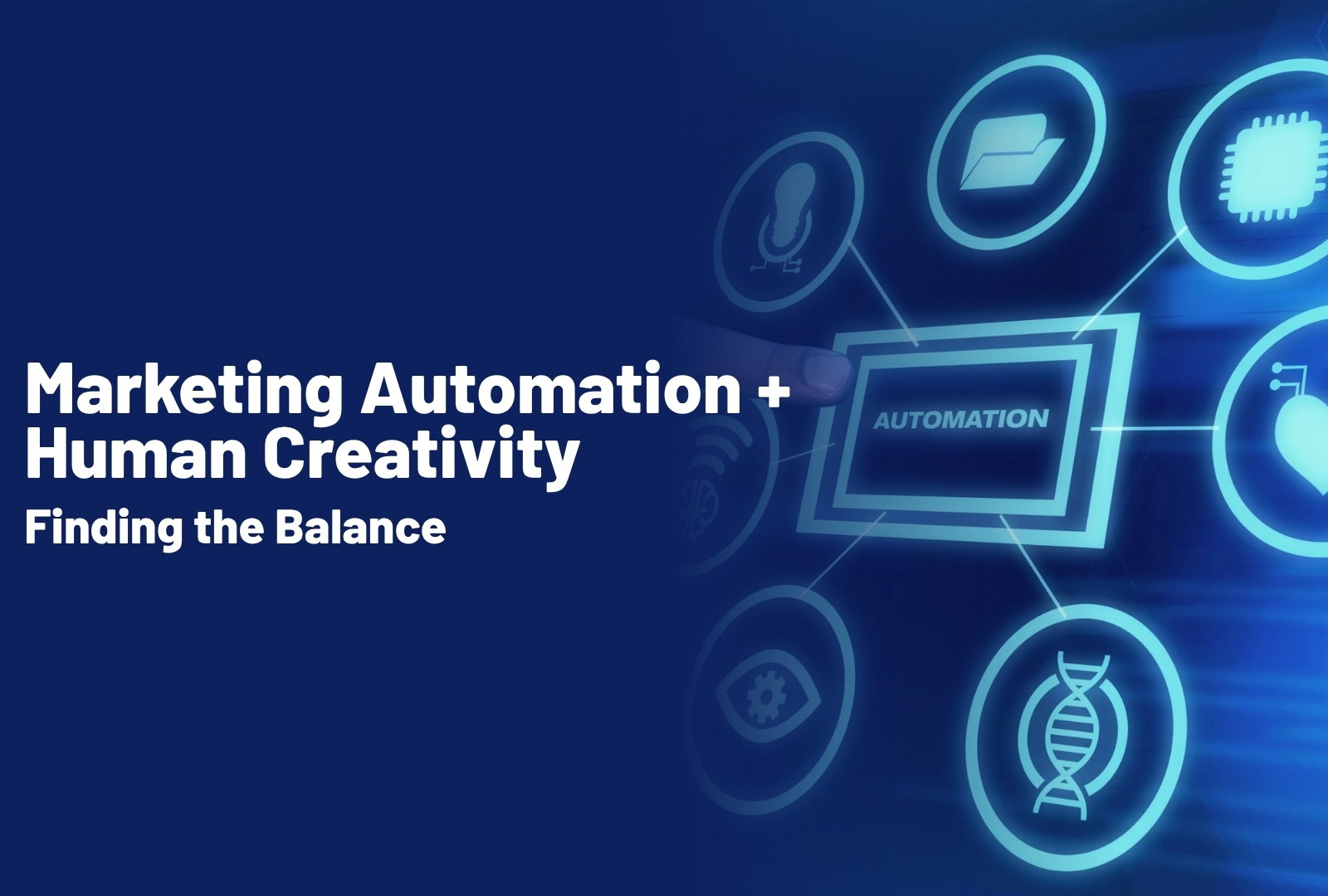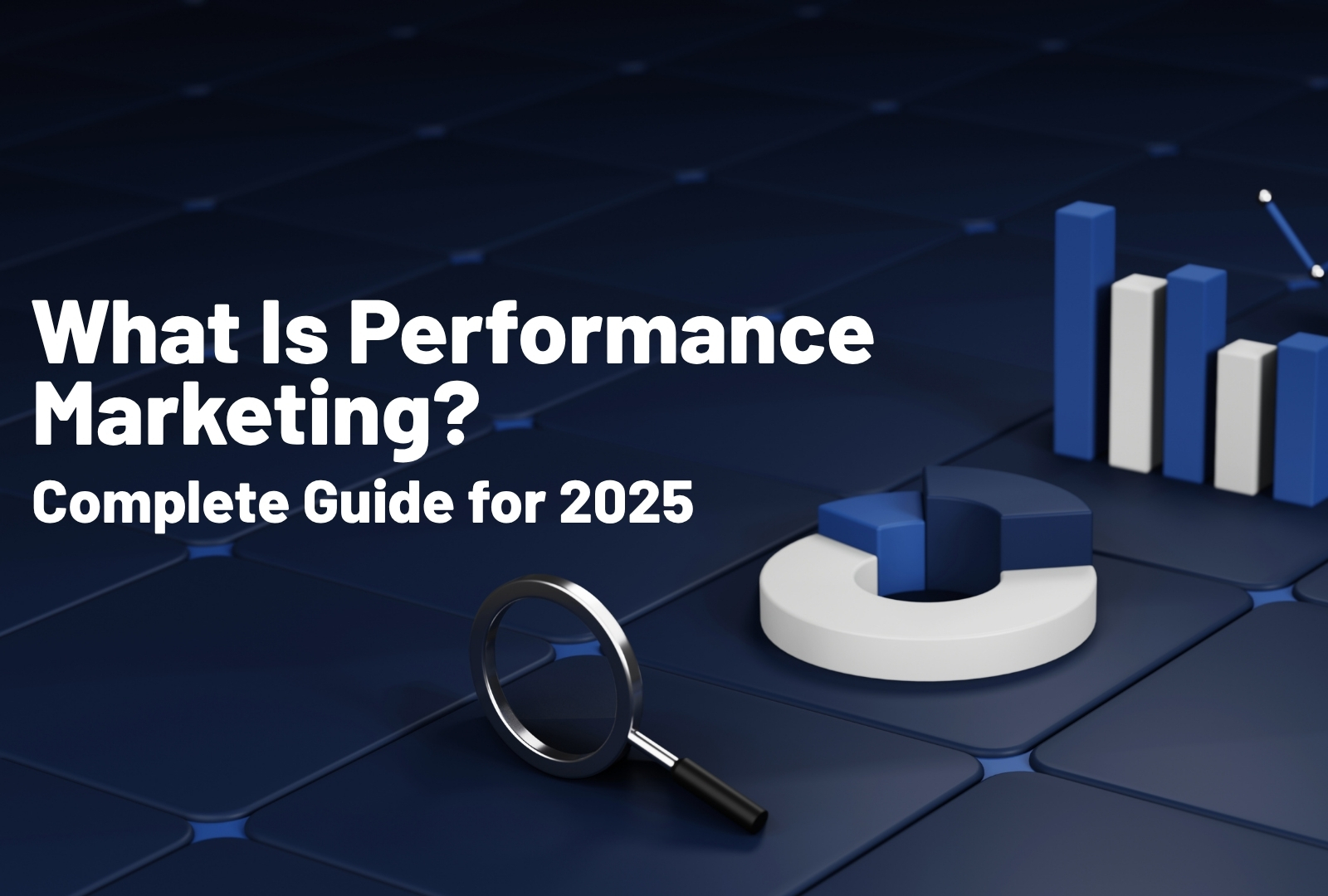AI in marketing involves leveraging artificial intelligence technologies to improve and optimize marketing strategies and processes. It involves using algorithms and machine learning to analyze data, predict trends, and personalize customer interactions. By leveraging AI, marketers can make more informed decisions, optimize campaigns, and deliver personalized experiences to their audiences.
Understanding AI Algorithms
At the core of AI in marketing lies the sophisticated algorithms that power decision-making processes. These algorithms can process vast amounts of data at incredible speeds, identifying patterns and insights that would be impossible for humans to discern manually. For marketers, this means a greater ability to predict consumer behavior and tailor strategies to meet specific needs.
In practice, AI algorithms can analyze everything from customer purchase histories to social media interactions, offering a 360-degree view of the consumer. This in-depth understanding enables businesses to craft highly targeted marketing campaigns that connect with individuals on a personal level.
Machine Learning in Marketing
Machine learning, a branch of AI, allows systems to learn and adapt from experience without explicit programming. In marketing, these models can analyze past consumer interactions to predict future behaviors and preferences. This predictive capability is invaluable for crafting campaigns that anticipate customer needs and desires.
For instance, machine learning can help identify which products a customer is likely to purchase next, allowing marketers to customize their outreach efforts. This proactive approach not only enhances customer satisfaction but also drives higher conversion rates.
Personalization at Scale
One of the most significant advantages of AI in marketing is its ability to deliver personalization at scale. Traditional marketing efforts often fall short in personalizing messages for large audiences, but AI changes the game by allowing businesses to tailor interactions for millions of customers simultaneously.
Through AI-powered segmentation, marketers can create detailed consumer profiles and deliver personalized content that speaks directly to individual preferences. This level of customization fosters deeper connections with audiences, resulting in increased loyalty and engagement.
AI in Marketing Automation
Automation is one of the most impactful applications of AI in marketing. AI-powered marketing automation tools can handle repetitive tasks such as email marketing, social media posting, and lead generation. Automating these tasks helps businesses conserve time and resources, enabling marketers to concentrate on more strategic initiatives.
Automating Email Marketing
Email marketing remains a cornerstone of digital marketing, and AI can significantly enhance its effectiveness. AI tools can automate the process of crafting and sending personalized emails, ensuring that content reaches the right person at the right time. By analyzing data such as open rates and click-through patterns, AI can optimize email campaigns for maximum impact.
For instance, AI can identify the best time to send emails to each recipient, boosting the chances of engagement. Additionally, AI can personalize email content based on past interactions, making each message more relevant and compelling.
Streamlining Social Media Management
Managing social media platforms can be overwhelming, but AI-driven tools simplify the process by automating content scheduling and posting. These tools can examine audience behavior patterns to pinpoint the optimal posting times, maximizing visibility and engagement. AI can also track user interactions, providing insights into which types of content resonate most with followers.
Furthermore, AI can assist in real-time social media monitoring, identifying trends and emerging conversations. This allows marketers to join relevant discussions and engage with audiences more effectively, enhancing brand visibility and reputation.
Enhancing Lead Generation
AI can revolutionize lead generation by identifying potential customers through sophisticated data analysis. AI-driven platforms can analyze online behavior and engagement patterns to identify individuals who are most likely to convert. This targeted approach ensures that sales teams focus their efforts on high-quality leads, improving conversion rates and sales efficiency.
Moreover, AI can automate follow-up processes, nurturing leads with personalized content until they are ready to make a purchase decision. This automated nurturing process saves time and resources while maintaining a consistent and personalized touch with potential customers.
AI Content Creation
Creating high-quality content is a crucial aspect of any marketing strategy. AI can assist in this process by generating content ideas, writing articles, and even creating visuals. AI-powered tools can evaluate existing content to uncover gaps and recommend topics that are more likely to engage the target audience.
Generating Content Ideas
AI can analyze market trends, consumer preferences, and competitor content to generate innovative content ideas. By identifying popular topics and emerging trends, AI helps marketers create content that captures audience interest and drives engagement. This helps keep content strategies both relevant and future-focused.
In addition, AI can perform keyword analysis to determine which topics and phrases are trending within specific industries. This information allows marketers to craft content that ranks well in search engines, increasing visibility and attracting more organic traffic.
Writing and Editing Content
AI tools can assist in writing and editing content, offering suggestions to enhance clarity, grammar, and overall readability. Although AI-generated content may not fully replicate human creativity, it offers a valuable foundation for marketers to build upon. AI can quickly draft content, allowing human writers to focus on refining and personalizing the message.
Moreover, AI can automate the editing process, checking for consistency and alignment with brand voice. This ensures that all published content maintains a high standard of quality and professionalism, enhancing brand credibility and trust.
Creating Visual Content
Visual content is essential for engaging audiences, and AI can streamline the creation process by generating visuals based on data-driven insights. AI-powered design tools can produce graphics, videos, and infographics that align with brand aesthetics and audience preferences. This capability reduces the time and cost associated with visual content creation.
Additionally, AI can analyze visual content performance, offering insights into which designs are most effective at capturing audience attention. By continuously optimizing visual strategies, marketers can ensure their content remains fresh, appealing, and impactful.
Digital Marketing AI
AI can also enhance digital marketing efforts by optimizing advertising campaigns and improving targeting. AI algorithms can analyze vast amounts of data to uncover patterns and trends, enabling marketers to make well-informed, data-driven decisions. This can lead to more effective ad placements, better targeting, and higher conversion rates.
Optimizing Advertising Campaigns
AI can revolutionize digital advertising by dynamically optimizing ad placements and budgets in real time. AI-driven platforms analyze performance metrics to determine which ads are delivering the best results, reallocating resources to maximize ROI. This dynamic approach ensures that advertising budgets are spent efficiently and effectively.
For example, AI can detect underperforming ads and recommend changes to enhance their effectiveness. By continuously refining ad strategies, businesses can maintain competitive advantages and achieve higher engagement rates.
Enhancing Targeting Precision
Precise targeting is essential for successful digital marketing, and AI excels at identifying and reaching the right audience. AI algorithms can segment audiences based on demographics, behavior, and interests, ensuring that marketing messages resonate with the most relevant consumers. This focused strategy reduces wasted ad spend and boosts conversion rates. In practice, AI-powered targeting can deliver personalized ads to users who have previously interacted with a brand, increasing the likelihood of conversion. This level of personalization enhances customer experiences and strengthens brand-consumer relationships.
Improving Conversion Rates
AI can significantly improve conversion rates by analyzing user behavior and optimizing the customer journey. AI tools can identify friction points in the conversion process, offering solutions to streamline the path to purchase. By removing barriers and enhancing user experiences, AI helps businesses convert more leads into paying customers.
Moreover, AI can conduct A/B testing to determine which elements of a marketing campaign are most effective. This data-driven approach allows marketers to make informed decisions and continuously improve conversion strategies.
AI in Email Marketing
Email marketing continues to be one of the most effective ways to connect with customers. AI can improve these campaigns by personalizing content, optimizing send times, and analyzing engagement metrics. With AI, marketers can create personalized email experiences that drive higher open and click-through rates.
Personalizing Email Content
Personalization is key to successful email marketing, and AI can tailor email content to individual recipient preferences. By examining previous interactions and purchase history, AI can create messages that connect with individuals on a personal level. This level of customization increases the likelihood of engagement and drives higher conversion rates.
Furthermore, AI can segment email lists based on behavior and demographics, ensuring that recipients receive content that aligns with their interests. This targeted approach enhances customer satisfaction and loyalty.
Optimizing Send Times
AI can assess recipient behavior to identify the best time to send emails, enhancing the likelihood of engagement. By identifying patterns in email open rates and response times, AI can schedule emails to arrive when recipients are most likely to interact with them. This strategic timing maximizes visibility and effectiveness.
For instance, AI can predict which days and times are most effective for specific segments, allowing marketers to tailor their send schedules accordingly. This data-driven approach ensures that emails are not only opened but also acted upon.
Analyzing Engagement Metrics
AI can provide detailed insights into email campaign performance by analyzing engagement metrics such as open rates, click-through rates, and conversion rates. These insights allow marketers to understand what works and what doesn’t, enabling continuous optimization of email strategies.
By leveraging AI-driven analytics, marketers can identify successful elements of past campaigns and apply those learnings to future efforts. This continuous process guarantees that email marketing stays relevant, effective, and aligned with business objectives.
AI Marketing Tools
There are numerous AI marketing tools available that can help businesses streamline their marketing efforts. These tools range from AI-powered chatbots that provide customer support to predictive analytics platforms that forecast sales trends.
Chatbots and Customer Support
AI-powered chatbots are becoming increasingly popular for providing customer support and handling inquiries. These chatbots can engage with customers in real time, answering questions and providing assistance 24/7. By automating customer interactions, businesses can improve response times and enhance the customer experience.
Predictive Analytics
Predictive analytics platforms use AI to analyze historical data and predict future outcomes. Marketers can use these insights to anticipate customer behavior, optimize campaigns, and make more informed decisions. By leveraging predictive analytics, businesses can stay ahead of market trends and respond proactively to changing customer needs.
Recommendation Engines
AI-powered recommendation engines are crucial for personalizing the shopping experience. By analyzing user data, these engines suggest products or services that align with customer preferences and past behaviors. This personalized approach not only enhances the user experience but also drives higher sales and customer satisfaction.
For instance, e-commerce platforms can use recommendation engines to display products that a customer is likely to purchase based on their browsing history. This focused approach boosts the chances of conversion and strengthens brand loyalty.
Real-World Examples of AI in Marketing
Many companies have already begun to harness the power of AI in their marketing strategies. For example, Netflix uses AI algorithms to recommend content to users based on their viewing history and preferences. This personalized approach has helped Netflix maintain high customer satisfaction and retention rates.
Netflix and Personalized Recommendations
Netflix’s recommendation engine is a prime example of AI’s impact on marketing. By examining users’ viewing habits and preferences, Netflix can recommend content tailored to individual tastes. This personalized experience keeps users engaged and satisfied, reducing churn rates and increasing subscription longevity.
In addition, Netflix uses AI to optimize content delivery, ensuring that users receive the best possible streaming experience. Netflix’s commitment to personalization and quality has solidified its position as a leader in the streaming industry.
Amazon’s Dynamic Pricing Strategies
Amazon leverages AI to optimize pricing strategies, ensuring that products are competitively priced in real-time. By analyzing market trends and competitor pricing, Amazon can adjust prices dynamically, offering customers the best deals. This data-driven approach enhances the shopping experience and drives sales.
Additionally, Amazon’s recommendation engine leverages AI to suggest products tailored to customer behavior and preferences. This personalized strategy boosts cross-selling potential and improves customer satisfaction.
Coca-Cola’s AI-Powered Advertising
Coca-Cola has embraced AI to create more effective advertising campaigns. By analyzing consumer data, Coca-Cola can craft personalized marketing messages that resonate with specific audiences. This focused strategy boosts engagement and deepens the connection between brands and consumers.
Additionally, Coca-Cola uses AI to monitor social media conversations, identifying trends and opportunities for brand interaction. Engaging in real time boosts brand visibility and helps cultivate a positive brand image.
The Future of AI in Marketing
As AI technology continues to advance, its applications in marketing are likely to expand. We can expect to see even more sophisticated AI tools that offer deeper insights and enhanced automation capabilities. Businesses that embrace AI will be better positioned to adapt to changing market dynamics and deliver exceptional customer experiences.
Emerging AI Technologies
The future of AI in marketing will be shaped by emerging technologies such as natural language processing (NLP) and computer vision. These advancements will enable even more nuanced interactions with consumers, enhancing personalization and engagement. NLP, for example, will allow brands to understand and respond to customer inquiries more naturally and effectively.
Moreover, computer vision technology will revolutionize visual content creation and analysis, offering deeper insights into consumer preferences. This will empower marketers to craft more compelling and relevant visual campaigns.
Enhanced Customer Insights
Future AI developments will provide marketers with even deeper insights into customer behavior and preferences. By integrating data from various sources, AI will offer a comprehensive understanding of the customer journey, identifying touchpoints that drive engagement and conversion. This holistic view will enable marketers to create cohesive and impactful strategies.
In addition, AI will enhance predictive analytics, allowing businesses to anticipate market trends and consumer needs with unprecedented accuracy. This insight will enable brands to outpace competitors and seize emerging opportunities.
The Role of AI in Omnichannel Marketing
AI will play a pivotal role in the evolution of omnichannel marketing, ensuring seamless and consistent customer experiences across all touchpoints. By analyzing cross-channel data, AI will enable brands to deliver personalized messages that resonate with consumers wherever they interact with the brand. This integration will enhance brand loyalty and drive higher conversion rates.
Furthermore, AI will optimize resource allocation across channels, ensuring that marketing efforts are aligned with consumer preferences and behaviors. This strategic approach will maximize ROI and enhance overall marketing effectiveness.
Conclusion
AI has the potential to transform marketing strategies by automating processes, personalizing customer interactions, and providing valuable insights. By leveraging AI, businesses can enhance their marketing strategies, boost customer engagement, and accelerate growth. As AI technology continues to evolve, it will become an indispensable tool for marketers looking to stay competitive in the digital age.
Embracing AI in marketing is not just a trend—it’s a necessity for businesses that want to thrive in today’s fast-paced digital landscape. By leveraging AI, marketers can create more effective strategies, deliver personalized experiences, and ultimately achieve better results. The future of marketing rests on the seamless integration of AI technologies, allowing brands to engage with consumers in meaningful and impactful ways.






